Highlights from the Biggest Events this Fall
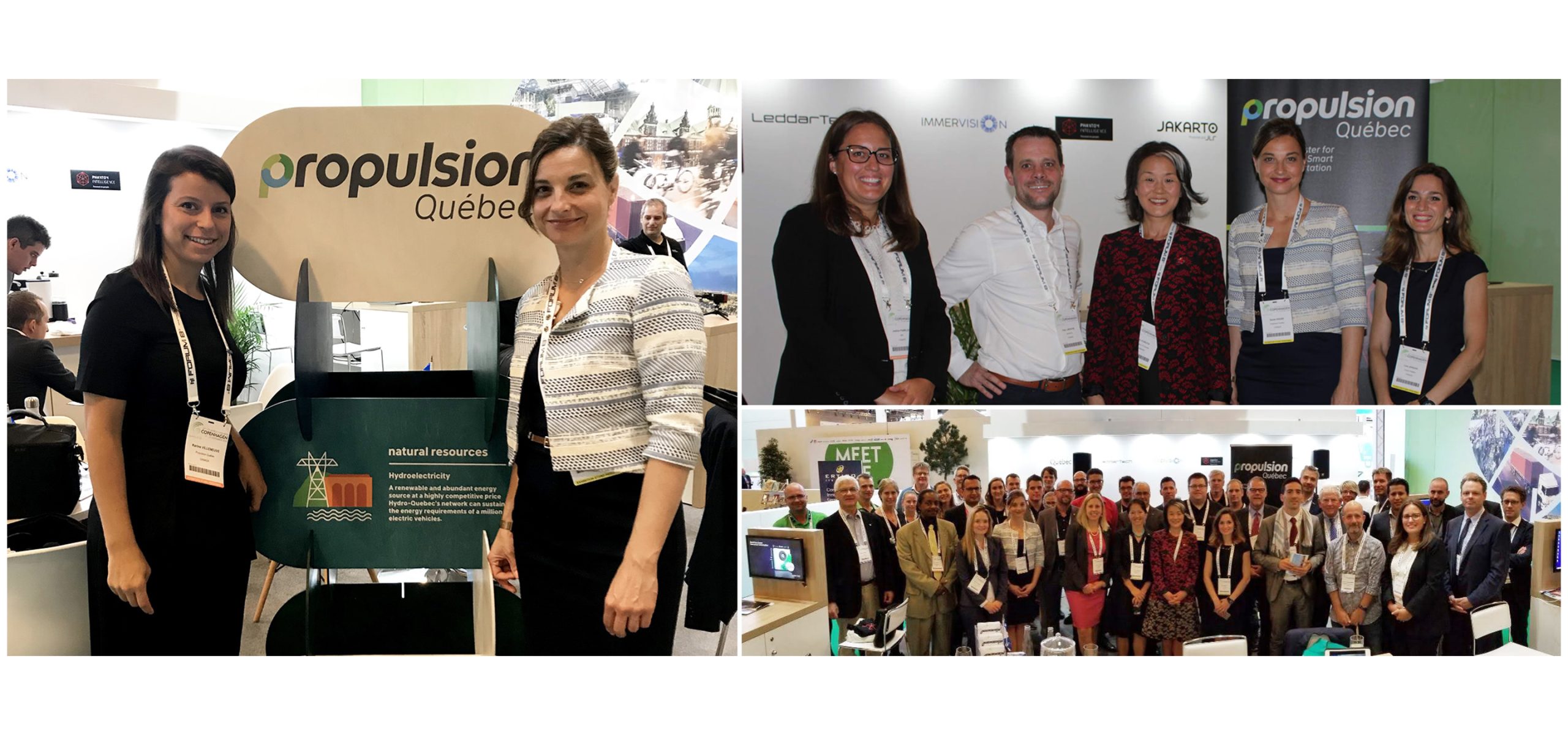
Members of the Propulsion Québec team attended a number of key industry events this fall. They were on hand to support cluster members and rally interest in Quebec’s ecosystem among global smart and electric transport players.
The team was able to use the events to set up a number of meetings of value to both the cluster and the companies involved. Positive tangible outcomes of those initiatives are already being seen.
The team’s first stop was Copenhagen, Denmark, for a must‑attend annual event: the ITS World Congress 2018. As the world’s biggest ITS (intelligent transportation system) event, it was an excellent opportunity for Propulsion Québec and the Quebec companies in attendance to connect with some of the industry’s top European and North American players.
Held this year in a city recognized as a trailblazer in active mobility, ITS World Congress Copenhagen gave rise to many valuable discussions on the importance of ITS for sustainable development and of building technologies that give people access to a wide variety of efficient, low‑cost, eco‑friendly mobility services.
The programme gave participants the chance to have private B2B meetings and discussions with ITS businesses and organizations from all over. Many participants went home with new business relationships and leads for future discussions.
Finally, Propulsion Québec’s networking event, presented by Jakarto and attended by Canada’s ambassador to Denmark Emi Furuya, was a rousing success.
The next (twenty-sixth) ITS World Congress will be in Singapore from October 21 to 25, 2019.
Next stop: Asia, where Propulsion Québec met up with the Export Québec team and a delegation of Quebec companies for a two‑week trade mission to China and Japan.
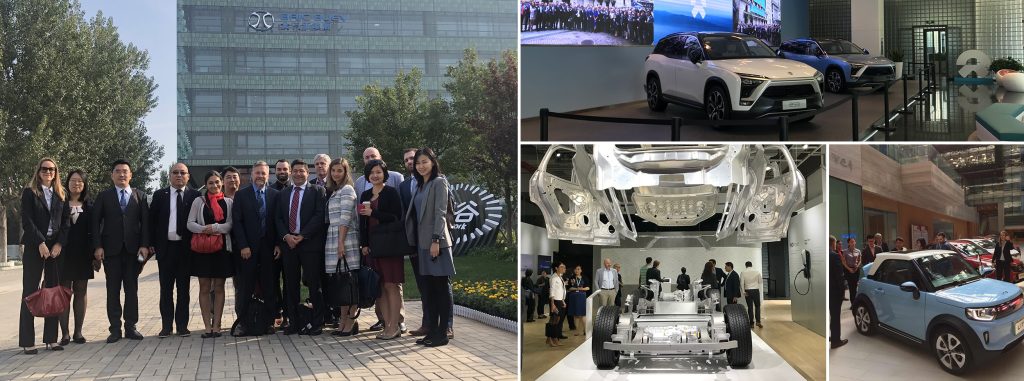
The first part of the mission took place in China and involved an impressive number of meetings with C‑suite executives, including those at the helm of auto groups BAIC BJEV—the electric subsidiary of BAIC (Beijing Automotive Group)—and SAIC Motor (Shanghai Automotive Industry Corporation).
Propulsion Québec was also able to present on Quebec’s ecosystem to the leaders of organizations that are driving the development of smart and electric vehicles in China, including the China Automotive Technology and Research Center (CATARC) and the National New Energy Vehicle Technology Innovation Center (NEVC). The group also met with a number of technology start‑ups in Beijing and Shanghai, among others.
Finally, the Chinese part of the mission also included a tour of the National Intelligent Connected Vehicle Pilot Zone in Shanghai. The complex is hugely impressive and also just plain huge—the size of a town.
With all of the tours and private meetings, the delegation really got a good sense of the incredible scope and size of the Chinese market. Electric vehicle ownership is on the rise in China and the market is developing rapidly. What’s more, China already has some compelling data on the positive impact of transport electrification for the climate in that part of the world. Lastly, it was interesting to see how many smart components are making their way into the electric vehicles manufactured in China—far more than the current average.
Third stop: Japan, where the delegation met with many of the country’s top businesses and manufacturers: Calsonic Kansei, Mitsubishi Motors, Nissan Motor Corporation, and Toyota. Propulsion Québec was able to establish some very good contacts within these organizations for the benefit of its members. The Japanese companies showed a marked interest in technological advances related to batteries and to electrification in general.
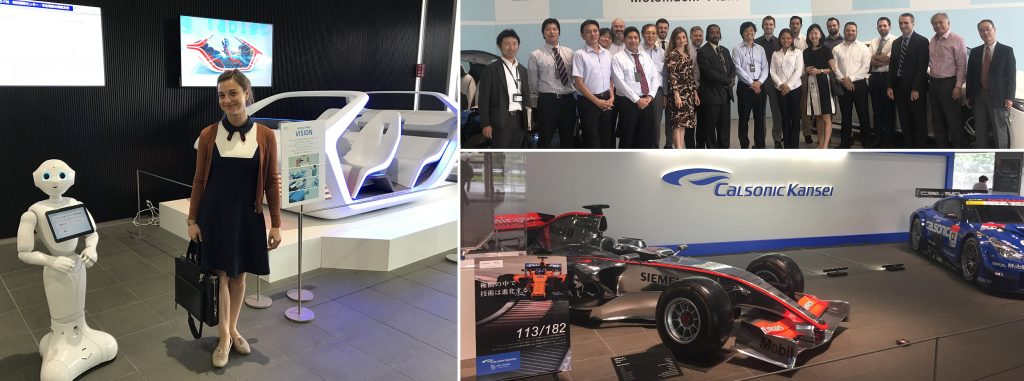
Here are the main takeaways from Propulsion Québec’s mission in Asia:
- All of the businesses in the industry are essentially at the same level of development They’re all in a race to solve the most complex problems we face, meaning that whether a business is in China, Japan, or Quebec, investments in R&D will continue to be essential if we are to compete effectively in the industry.
- Both China and Japan have built advanced facilities for testing their technologies in a controlled environment, but there are very few tests of self‑driving vehicles taking place on public roads in either country. In both China and Japan, companies are faced with many hurdles when trying to test their products on the open road.
- Everyone seems to have settled on electric vehicles as the way forward. Everyone also subscribes to the CASE model and agrees that tomorrow’s mobility will be both electric and shared.
And we’re already seeing results!
The delegation had just gotten back from Asia and already executives from BJEV and the National New Energy Vehicle Technology Innovation Center (NEVC) were on a plane to Montreal to present their open innovation project in a bid to get businesses, individuals, and researchers on board, having recognized the immense potential to be found in Quebec’s businesses and researchers.
That’s a concrete result of the mission organized by MESI’s Export Québec in close collaboration with the team at Investissement Québec and a win we can all be proud of!
Fourth and final stop: Waterloo, Ontario!
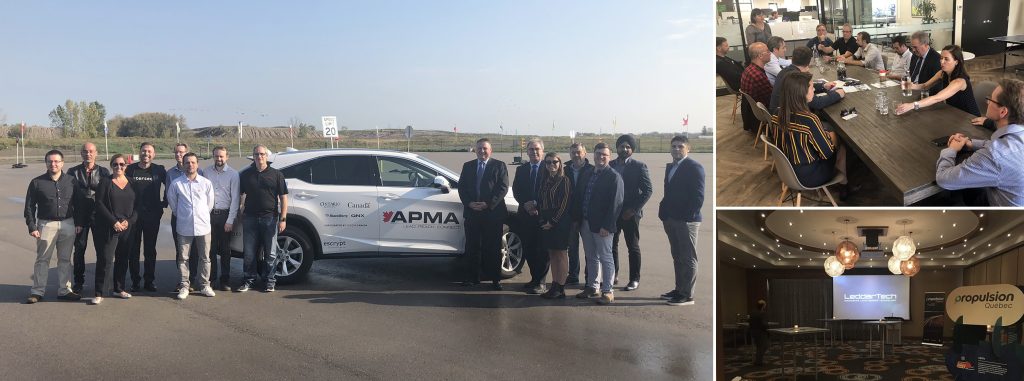
For the AutoTech Symposium, Propulsion Québec led a delegation of Quebec businesses on a trip to Stratford and Waterloo, a part of Ontario that’s become a recognized hub for smart mobility research and trials. The two‑day mission included visits to several local technology companies and a tour of the Stratford test track, which made a big impression.
The Québec Smart Transportation Cocktail event presented by Leddartech gave delegation members the chance to meet and network with key players in the region.
The mission created great opportunities for relationship building between Quebec and Ontario for businesses, organizations, and research institutions alike. With 50% of the exhibitors at the AutoTech Symposium hailing from Quebec, the members of Propulsion Québec enjoyed excellent visibility at the event.
Continue reading on this subject

The challenges of designing a 40-tonne, 100% electric mining vehicle for open-pit mines
Partnerships and implications The partners involved in the development of a 100% electric Quebec mining vehicle were all eager to be involved with the project from the outset, for a variety of reasons. NRC’s Eddy Zuppel explained their contribution: “Before starting the project, it was important to model and simulate the vehicle’s route in order […]
Read more
Energy efficiency: Financial support to put your ideas into action
Leading a company involves balancing several priorities at the same time. Energy efficiency? It’s an important issue—one of many! What if we gave you what you need to make energy efficiency a driving force behind your company’s performance and profitability? The good news is, Hydro-Québec offers financial assistance and guidance to help you balance performance and energy efficiency.
Read more
My Consumption Profile: data that lets you strategically manage your electricity use
Companies have a critical role to play in the energy transition. Knowing that energy efficiency factors big into profitability, your organization will benefit from strategically managing its electricity use. The key? Your data!
Read more
Electrifying school bus fleets : Grants available to support your project
In this series of articles, we demystify the key steps of converting your school bus fleet to electric power thanks to the Transporteur+ guide. This guide aims to provide easy and direct access to resources to clarify the steps, issues, conditions and facilitating measures for a successful transition to electrification.
Read more
Electrifying school bus fleets | Key step : Comissioning
In this series of articles, we demystify the key steps of converting your school bus fleet to electric power thanks to the Transporteur+ guide. This guide aims to provide easy and direct access to resources to clarify the steps, issues, conditions and facilitating measures for a successful transition to electrification.
Read more
FINANCING | $50 million from Finalta Capital in non-dilutive financing dedicated to the Electric and Smart Transportation sector
Fast growing, innovative companies from the electric and smart transportation (EST) sector in Québec take advantage of the $50 million in funding dedicated to the EST ecosystem by Finalta Capital, one of Canada’s largest funds specialized in non-dilutive tax credit and government grant financing, announced in March 2023 as part of the Impulsion conference, the International EST Summit organized by Propulsion Québec.
Read more
Demand response: Save money by using hydro at the right times
If you could lower your company's hydro bill while contributing to the collective effort to support Quebec’s energy transition, would you? Yes, most likely! How? By curbing power demand for buildings and equipment during peak demand events.
Read more
Electrifying school bus fleets : The importance of adapting buildings and infrastructure
In this series of articles, we demystify the key steps of converting your school bus fleet to electric power thanks to the Transporteur+ guide. This guide aims to provide easy and direct access to resources to clarify the steps, issues, conditions and facilitating measures for a successful transition to electrification.
Read more
Electrifying school bus fleets : Implementing the pilot project and phase-in
In this series of articles, we demystify the key steps of converting your school bus fleet to electric power thanks to the Transporteur+ guide. This guide aims to provide easy and direct access to resources to clarify the steps, issues, conditions and facilitating measures for a successful transition to electrification
Read more
Electrifying school bus fleets: The importance of choosing your suppliers
In this series of articles, we demystify the key steps of converting your school bus fleet to electric power thanks to the Transporteur+ guide. This guide aims to provide easy and direct access to resources to clarify the steps, issues, conditions and facilitating measures for a successful transition to electrification.
Read more
The key to a successful school bus fleet electrification project
In this series of articles, we demystify the key steps of converting your school bus fleet to electric power thanks to the Transporteur+ guide. This guide aims to provide easy and direct access to resources to clarify the steps, issues, conditions and facilitating measures for a successful transition to electrification.
Read more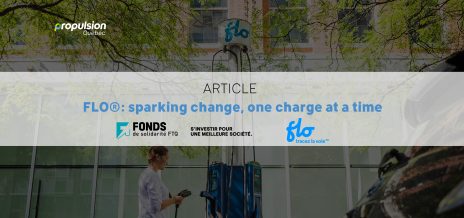
FLO®: sparking change, one charge at a time
FLO became a leader in electric vehicle (EV) charging in North America by integrating the process from start to finish: manufacturing charging stations, developing software and managing its network. To stay ahead of the curve in a fast-moving, innovation-driven market, the company turned to the Fonds de solidarité FTQ to support its growth.
Read more




